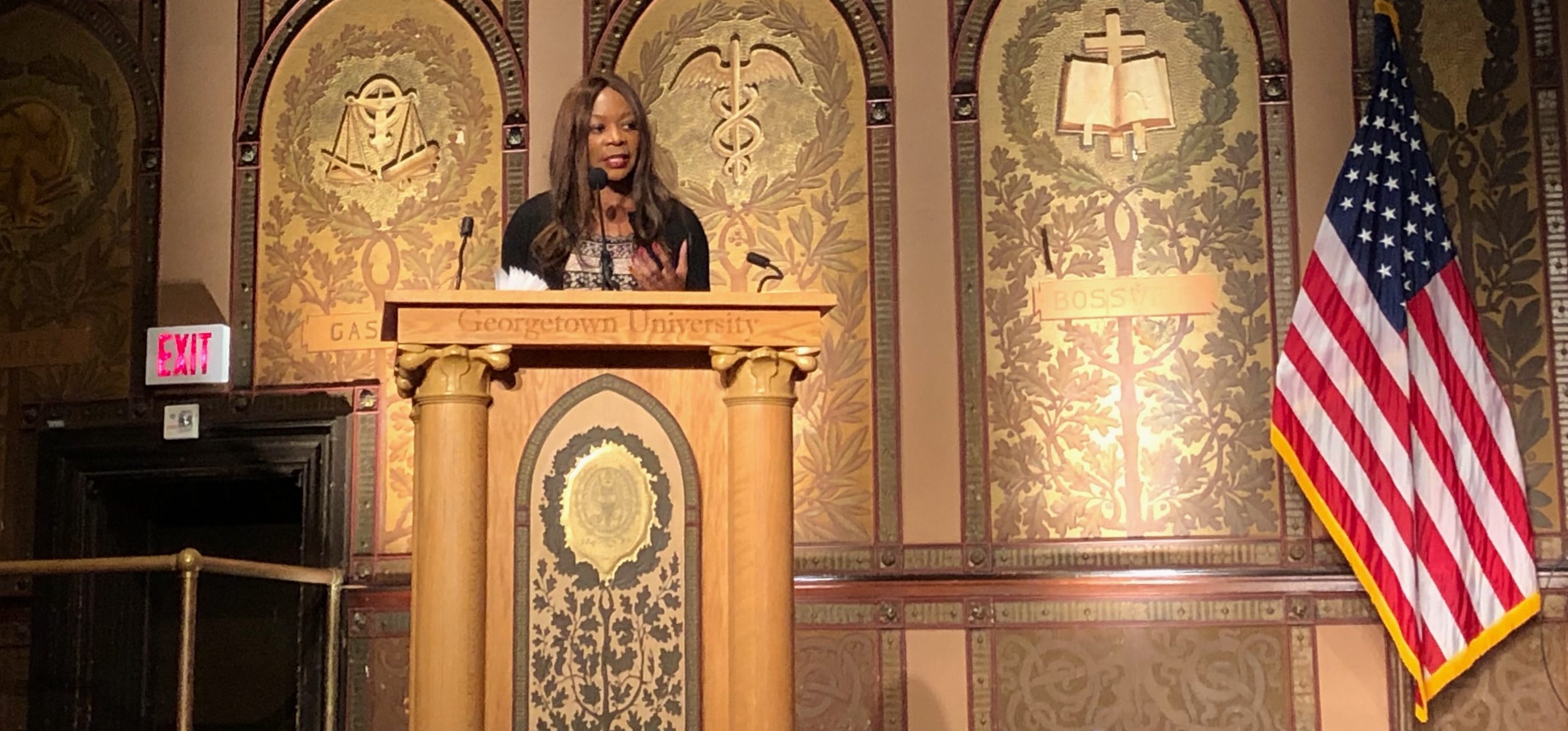Dambisa Moyo spoke on global economic policy and the future of democracy on March 19 in Gaston Hall. Her lecture was the closing keynote speech of the “Africa Imagines: Reversing the Gaze” symposium.
An author and economist, Moyo aimed to place the African narratives discussed earlier in the symposium in the context of global economic issues. “Africa’s not this ring-fenced entity,” she said. “It’s a critical part of the global system.”
Moyo identified income inequality, resource scarcity, and the changing role of technology as some subjects she thinks are of global importance. While Moyo believes these issues can be addressed in a democratic, capitalist society, she has been disappointed with policy solutions so far.
“Although we have a long list of long-term, multigenerational economic challenges, we’re very short term. Policymakers are short term.”
Moyo criticized politicians for designing economic policy based on their own political aspirations. Instead, she called for long-term, pragmatic solutions. “We have to be much more open-minded and less ideological in terms of trying to come to the solutions that work,” she said.
Moyo said that while some of these solutions may be counterintuitive to Western economists, they should still be taken seriously. She pointed to high wages for politicians in Singapore, rapid growth in China, and mandatory voting in some Latin American countries as potential case studies.
Described by Professor Scott Taylor as “contrarian” at times, Moyo is known for challenging the economic and policy establishments. “I was pretty much a firebrand when I was the average age of this room,” she admitted.
Her lecture and the conversation with Taylor that followed capped off the two day symposium on March 18 and 19. It was held by the Lannan Center for Poetics and Social Practice and featured lectures and discussions with prominent African academics, writers, and activists. According to the symposium’s website, it posed the question: “How do Africa’s artists, writers, and commentators view their own lands, politics, and culture—and most especially, what do they see when they look upon the West?”
Taylor pressed Moyo on a number of issues in their conversation, including her proposal that an individual’s vote should be weighted based on their knowledge of policy issues. Moyo acknowledged that this proposal was controversial but highlighted the value of unorthodox political thinking.
“We are at a critical juncture in terms of where the world is heading, and I think everything should be on the table.”
For Ojuolape Junaid (SFS ’19), who attended the keynote, this kind of proposal is why she finds Moyo so compelling. “I don’t know if I agree with everything that she said, but I don’t think that’s the point,” she said. “She’s provocative and gives us a lot to think about.”
Moyo also emphasized the value of African perspectives in global conversations. When asked about the role of African voices in fields like macroeconomics, development, and policymaking, she argued that their inclusion is essential to good policy.
According to a United Nations population report, Africa could account for 40 percent of the world’s population by 2100. This rapid growth, Moyo said, means that African perspectives will be increasingly important in global politics and economics.
“If you don’t have these people around the table, you’re solving the wrong problem.”






